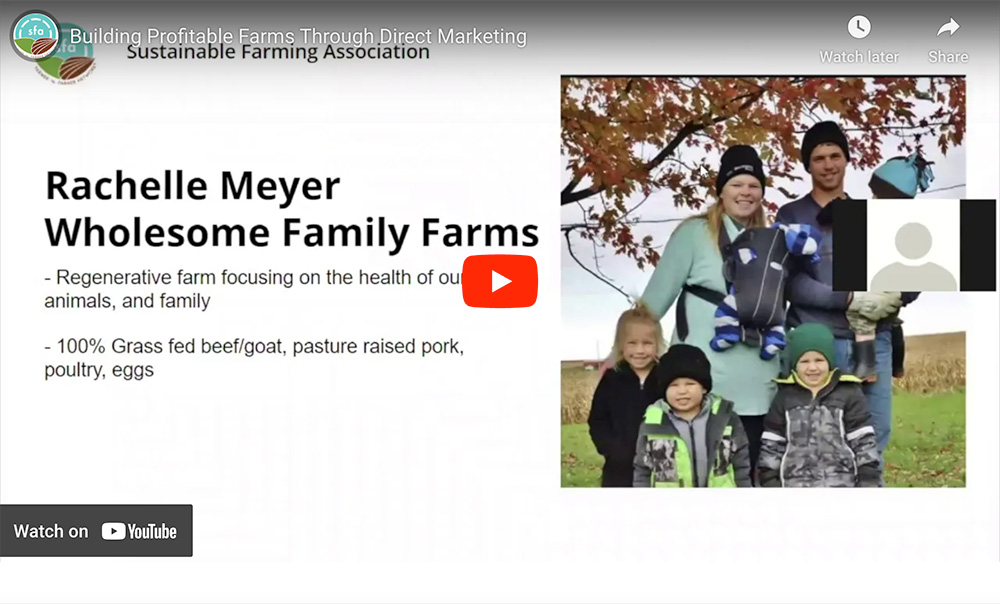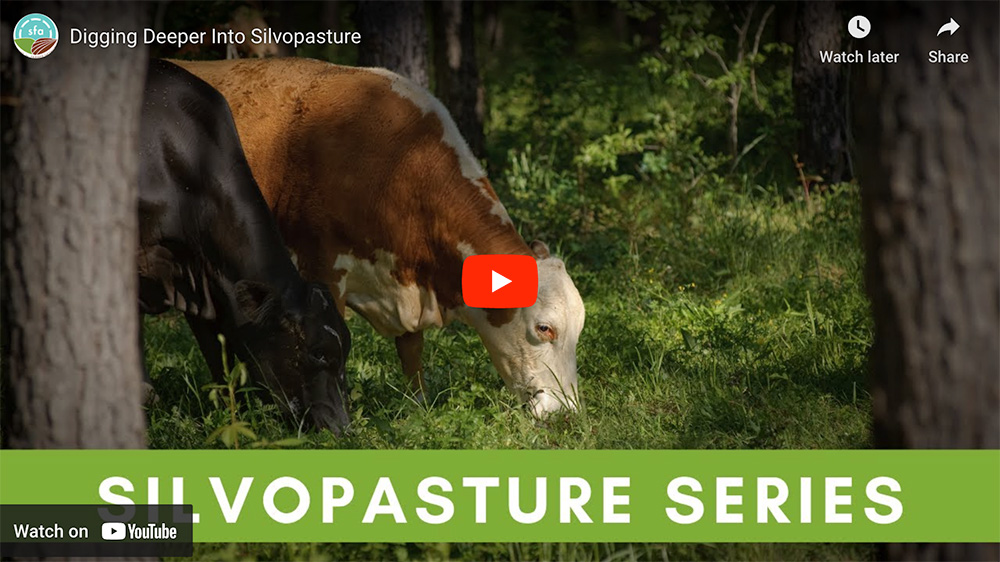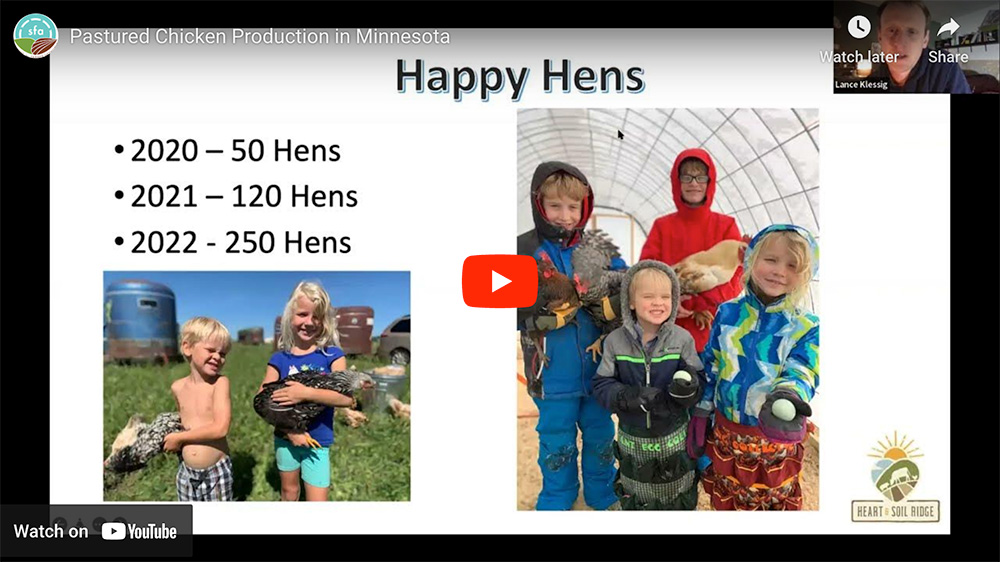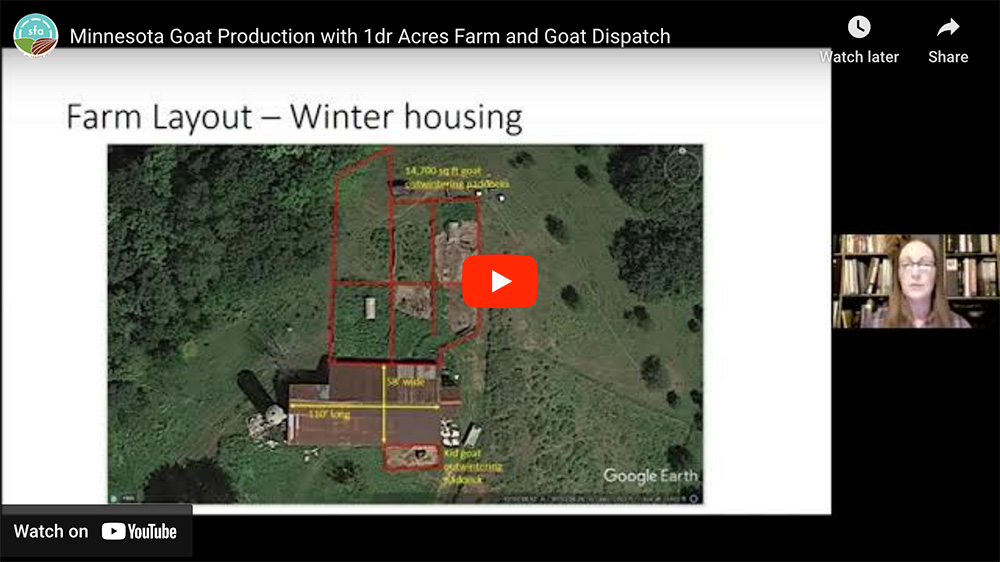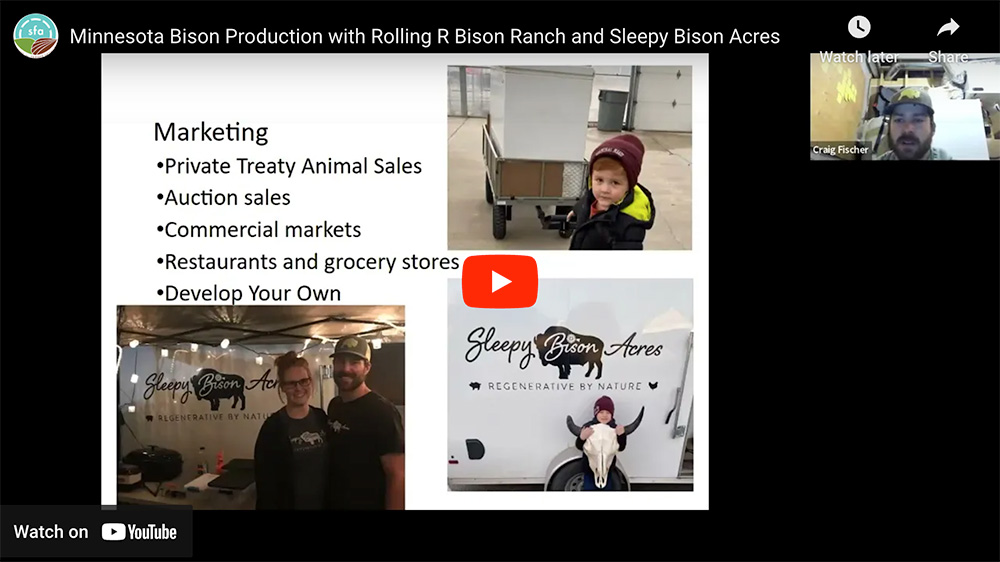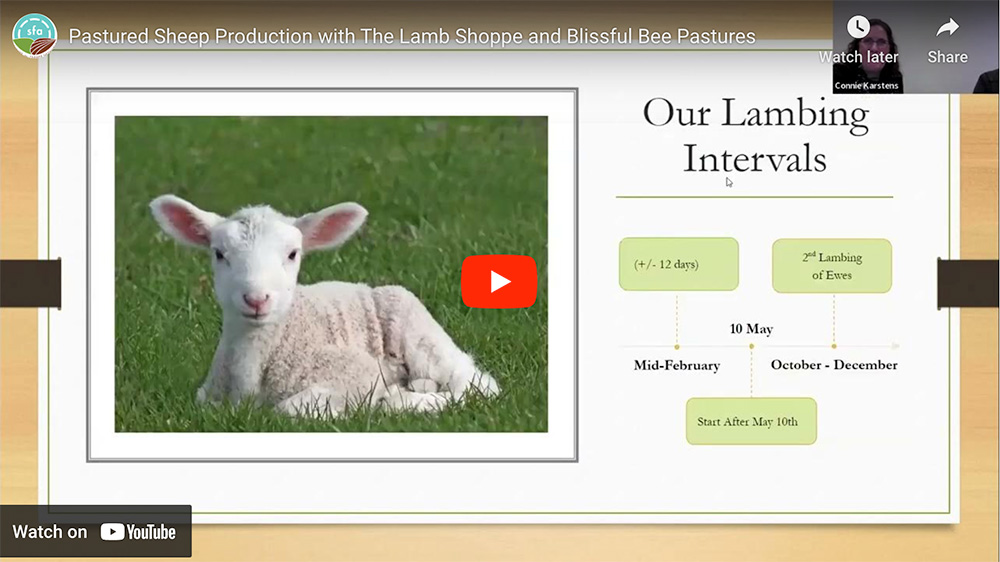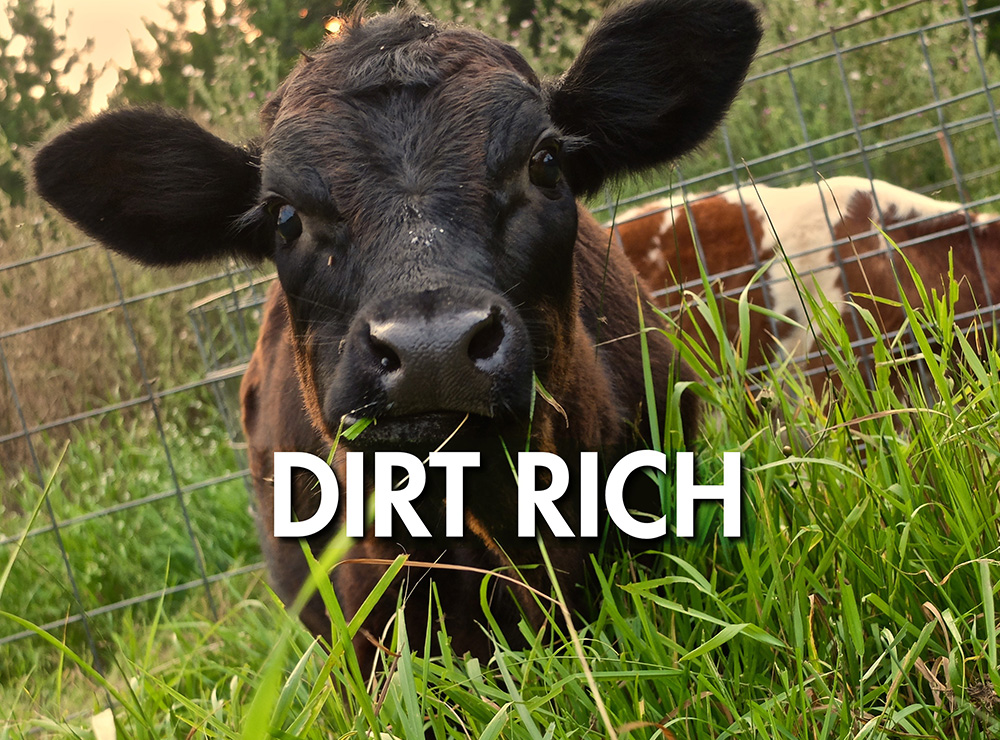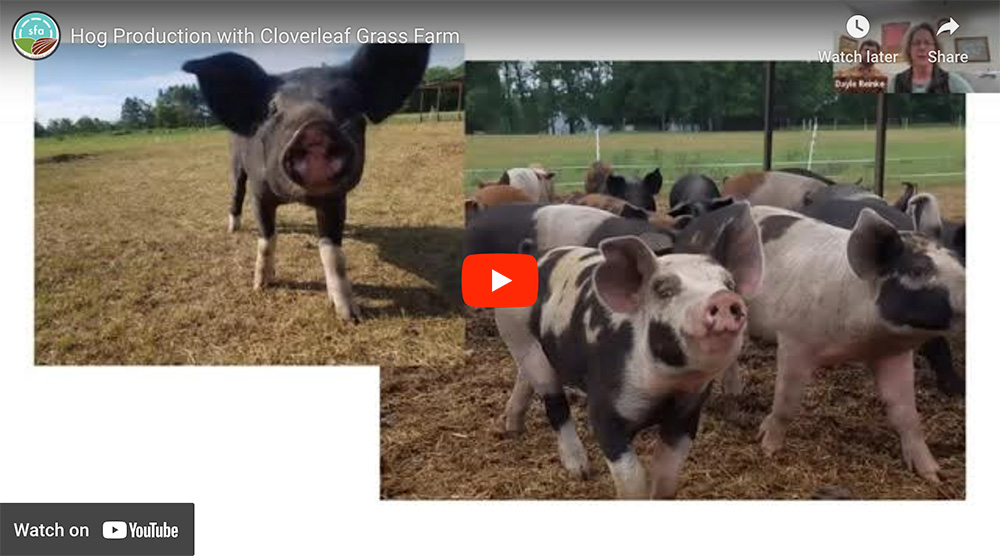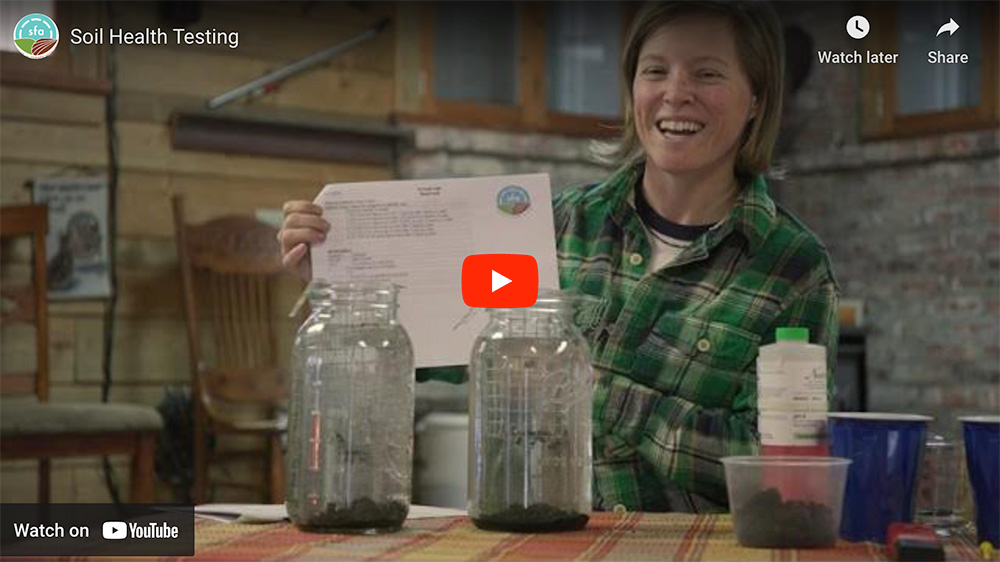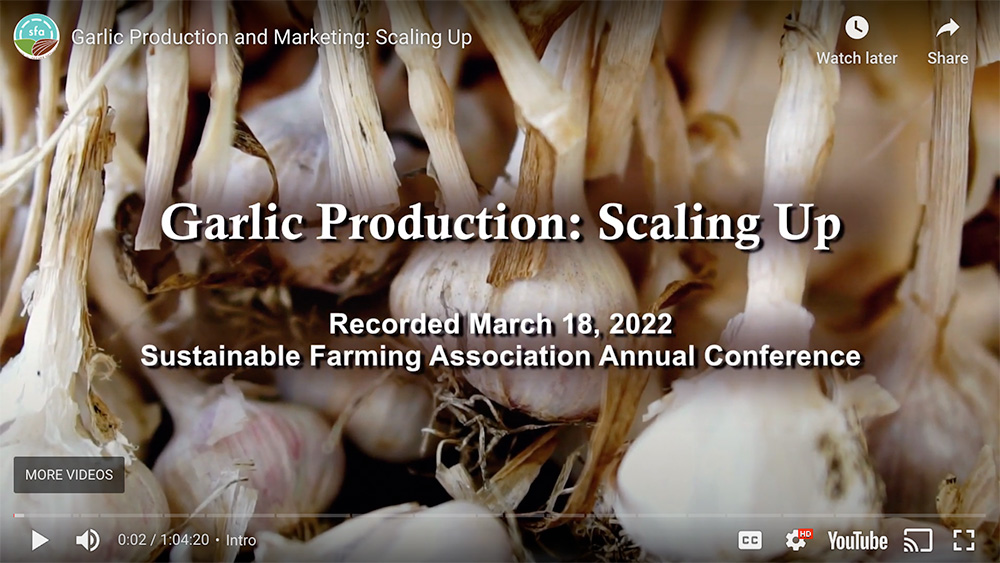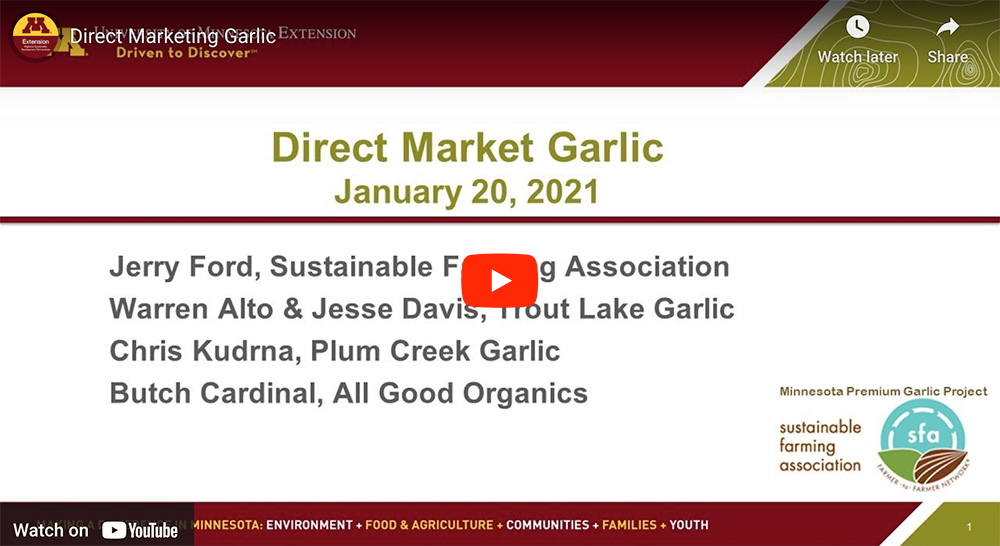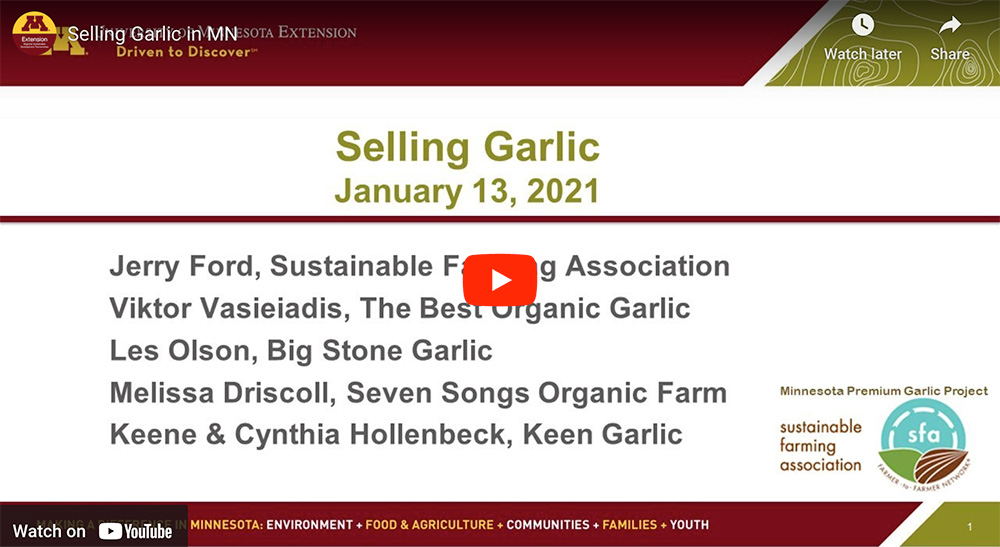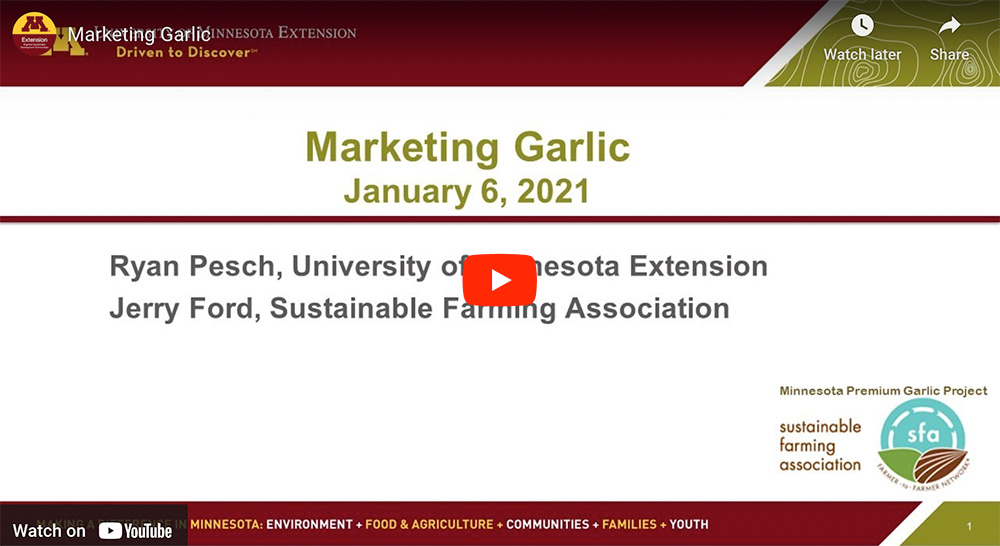Crow Wing River Basin Forage Council
Learn, explore, and network
Contact: foragecouncil@sfa-mn.org or 1.844.922.5573 Ext. 714.
Since 2000, Crow Wing River Basin Forage Council, a Networking Group of the Sustainable Farming Association, has provided thousands of people with opportunity to learn, explore, and network through winter workshops and summer land and water tours. The group is open to all who wish to participate.
Follow us on Facebook here.
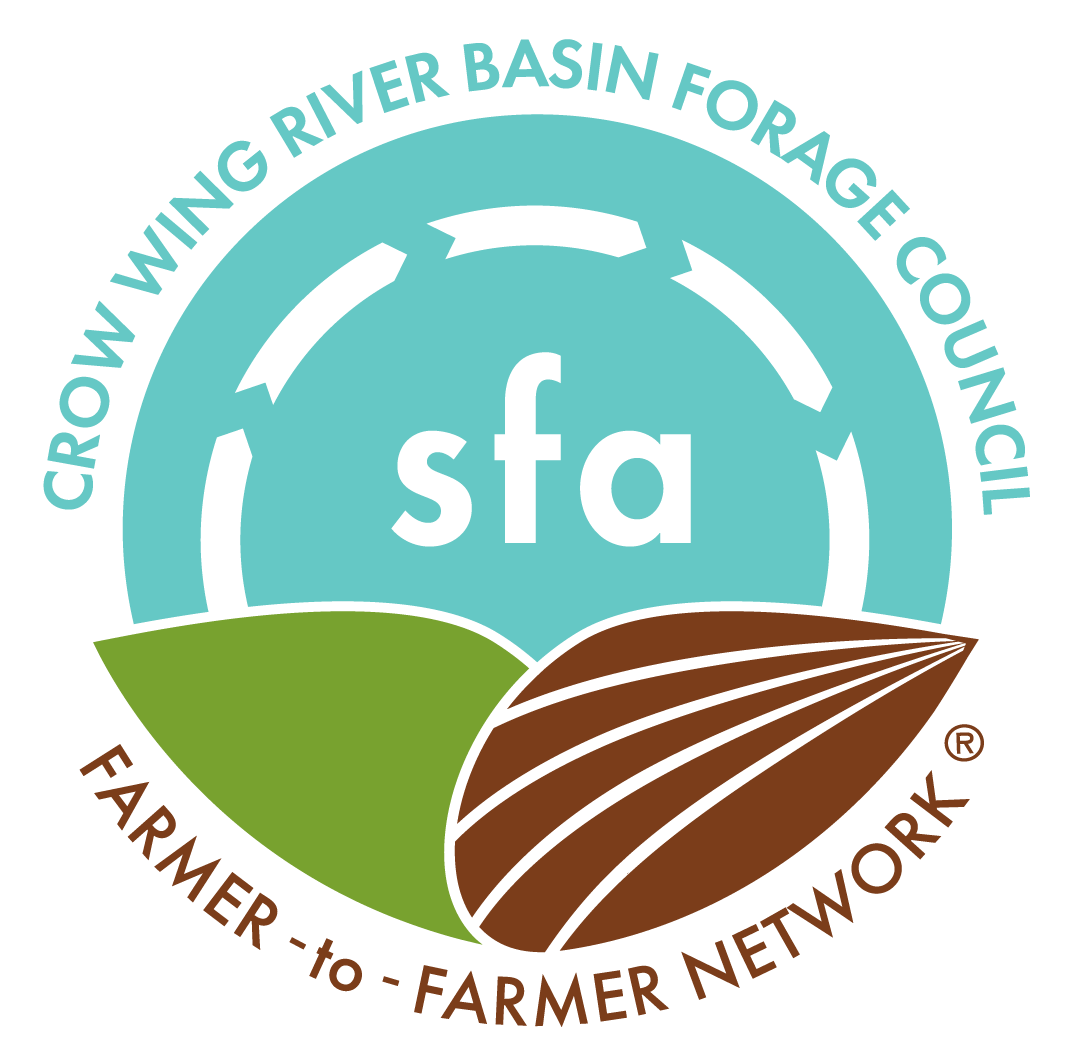
Upcoming Events
Pasture Walk Series #4: Brainerd
Thursday, July 24, 6:00 - 8:00 p.m.
James & Hannah Darabi Farm
9413 County Road 45 Brainerd, MN 56401
James and Hannah Darabi are aspiring farmers with a passion for sustainability.
Join the Forage Council for a pasture walk of their property, which is currently rented to Hollister Family Farm to graze their yearling cattle. The Darabis recently worked with the NRCS to seed row crop ground to pasture and fence it for grazing. Hear how the process worked for them, and from Abe Hollister on his current management strategies. Abe apprenticed under Kent Solberg two decades ago and has built their grass-based farm operation using owned and rented acres.
Free event.
Pre-registration requested, though walkups are welcome.
Registration: Advance registration requested, walkups welcome. Free admission
Pasture Walk Series #5
Thursday, August 28 6:00-8:00 p.m.
Stattelman Family Ranch
4916 41st Ave SW Pine River, MN 56474
Join the Forage Council on August 28th for the fourth Thursday pasture walk at Stattelman Family Ranch, a grass based cow /calf operation managed by Thomas Stattelman. A third generation ranch located in southern Cass County, the Stattelman’s have been implementing adaptive grazing management with a goal of increasing pasture production and profitability. Thomas is a graduate of the Ranching for Profit School.
Topics to be discussed include:
- Annual forages
- Out wintering/ bale grazing
- Grazing management
- Grazing economics
Registration: Advance registration requested, walkups welcome. Free admission
Pasture Walk Series #6:
Full Circle Ranch
Thursday, September 11 6:00-8:00 p.m.
15789 200th St., Sebeka, MN 56477
Brett and Joni Dailey purchased their 330-acre ranch in 2005, which had previously been continuously grazed by 60 cow calf pair on 440 acres, and the operator purchased all the hay for the cattle. The land was overgrazed and undermanaged.
The Daileys started their conservation grazing journey by connecting with their county Soil and Water Conservation District and NRCS offices. Working with Ivan Reinke and others, they developed a grazing plan and water system. They started with 17 cow/calf pairs and have since grown to 50 with expectations of continual growth and increase of cow/calf numbers. They calve mid-to-late April and typically background the calves to 750-800 lbs. Management has allowed them to become a self-sufficient farm, harvesting hay from 120 acres and rotational graze through 12 paddocks on 160 acres. The cattle graze each paddock for 5-7 days before rotating to a new paddock, allowing about 2 months rest period. Winter out feeding is rotated between paddocks annually which adds organic matter and fertilization to the ground.
Brett and Joni were both raised on farms, so they naturally wanted to continue to have cattle. They originally purchased the farm as a hobby, as they both had off farm jobs, Brett being an Electrician, owning and operating Dailey Electric and Joni a nurse at Lakewood Heath System. Since then, it has turned into a passion for conservation and land utilization. “It has been amazing to see the difference in what good stewardship and management can do.” said the Daileys.
Registration: Advance registration requested, walkups welcome. Free admission
Forage Council Grazing School
Friday, September 12 & Saturday, September 13
Verndale Community Center
109 1st Ave SE Verndale, MN 56481
The Forage Council Grazing School: The Why, What, How, and Who for Grazing. Taking grazing to the next level.
This is a two-day event. Lunch provided both days, along with a Friday evening meal at the Community Center in Verndale.
See the flyer at right for more details, and see below for presenter bios.
Advance registration is required.
$175 SFA members
$200 non members
Members must log in to see member pricing. Learn more about joining SFA here.
Refunds for cancellations can be requested up to 48 hours prior to the event.
Grazing School Host Farms
Flanagan Farms
Steve & Susan Flanagan Bluffton, Minn.
In 2005 we purchased a small, rocky, one cut hay farm and converted it into a grazing cell utilizing the EQIP program.
We initially grazed only stockers and then converted them to a mixed yearling and cow-calf herd.
The land has marginal drainage and above average deer pressure, so grain production is difficult. We now do a long rotation on the better drained acres. that currently consists of one to two years of annual forage which acts as a biological primer, followed by a grass/legume mix.

West 80 South Polls
George & Krystal Heller Verndale, Minn.
George Heller is a first-generation rancher based in Verndale, Minnesota. Together with his wife, Krystal, the couple manages a 330-acre operation that includes both owned and leased grazing land. Their work is rooted in a commitment to animal performance, soil health and regenerative practices-most notably adaptive grazing, which helps them maintain low input costs while enhancing ecosystem resilience.
Their diversified livestock enterprise includes sheep, cattle, and guardian dogs, strategically integrated to make the most of their land and resources. By stacking enterprises and implementing smart grazing strategies, the Hellers are able to increase efficiency and profitability on limited acreage.
Outside of ranching, George and Krystal also run a concrete construction business that currently demands much of their time. Despite the balancing act, they have been steadily growing their ranching operation over the past five years. With a clear vision and relentless work ethic, they are working toward a long-term goal: building a profitable, sustainable agricultural enterprise that can support them into retirement and leave a lasting legacy.
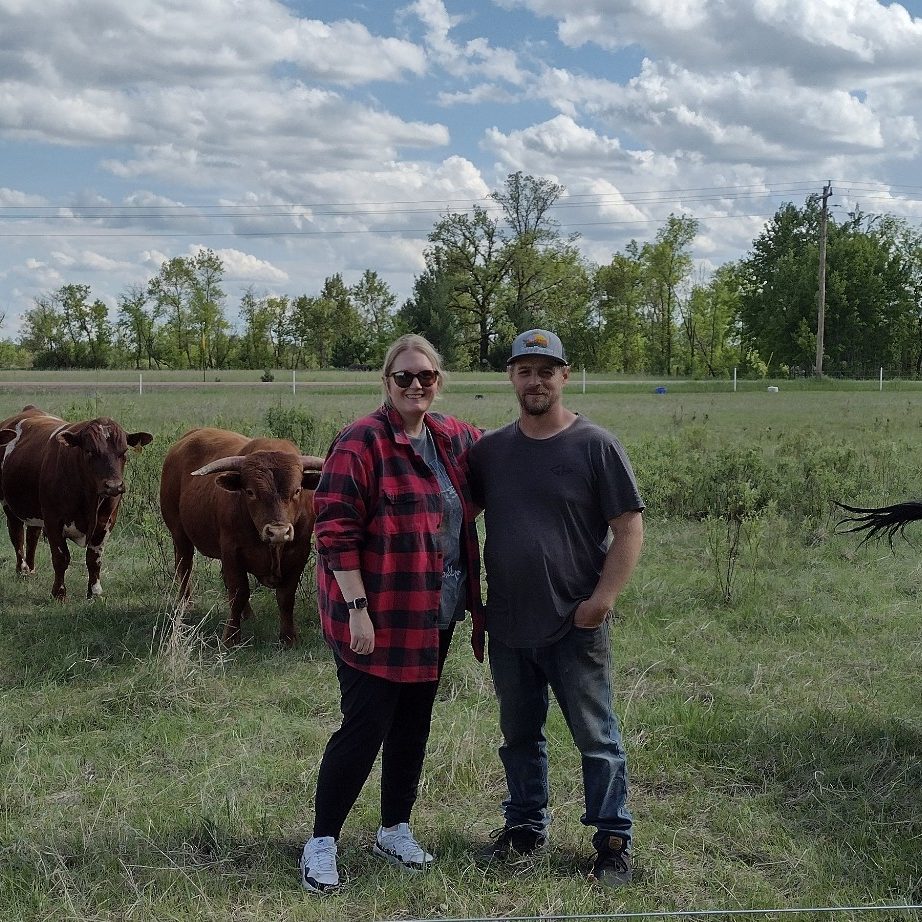
Forage Resources
- All
- Podcasts
- Videos
- Webinars




